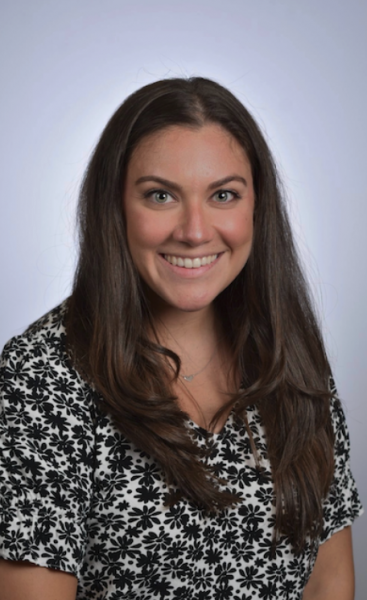American Psychological Association Division 50

Where do you work and in what capacity?
I am currently a Postdoctoral Research Fellow at Brown University’s Center for Alcohol and Addiction Studies within the School of Public Health working with Dr. Robert Miranda Jr. I’m also a Research Scholar as part of the Collaborative Justice-Involved Research and Training Program where I receive advanced training on conducting research with youth that have juvenile legal involvement. I provide clinical services at Bradley Hospital’s Vista Program which is an intensive outpatient program for adolescents with substance use and co-occurring disorders.
Where did you do your training?
I completed my undergraduate psychology degree at Saint Anselm College in Manchester, NH. I was also a chemistry minor because I had an interest in drug development and completed a research project funded by the IDeA Networks of Biomedical Research Excellence. I was a research assistant at the Recovery Research Institute (PI: Dr. John Kelly) at Massachusetts General Hospital for five years before going to graduate school. I completed my PhD at Florida International University in the Clinical Science in Child and Adolescent Psychology Program under the mentorship of Dr. Elisa Trucco. Lastly, I completed my clinical internship at the Warren Alpert Medical School at Brown University in the juvenile justice/behavioral health track.
What are your research interests?
Broadly, my research interests center on the prevention and treatment of adolescent substance use. During graduate school, my work focused on identifying how adolescents’ online (e.g. social media) and offline (e.g., family, school) social contexts influence the initiation and escalation of substance use. During my clinical internship, I observed that many adolescents in forensic and mental health settings were receiving substance use treatment for the first time, and only after engaging with these systems for other reasons. These experiences shaped my current focus which involves improving access to evidence-based substance use services for youth.
What are your clinical interests?
My research and clinical interests are closely aligned. Clinically, I am interested in treating adolescents who are at risk for, or actively engaging in, alcohol and drug use and who are also experiencing significant mental health challenges. This work often involves engaging family members, as well as other people in the adolescent’s life (e.g., state agencies, schools) so that their needs can be supported as best as possible.
What are your policy/advocacy interests?
I have held multiple student leadership roles where I advocated for meaningful change, particularly around promoting equity and addressing student burnout. At the national level, I have contributed to advocacy initiatives through the American Psychological Association, including advancing public loan forgiveness, and supporting sustained investment in medical research. I also supported the removal of the felony conviction item from APA membership applications. Beyond psychology, I collaborated with the Florida Coalition, Science Debate, and National Science Policy Network to develop regional candidate questionnaires aimed at strengthening the role of evidence in policy decision-making. These experiences have highlighted the importance of ensuring that science is translatable, accessible, and communicated in ways that can inform public policy.
How did you become interested in addictive behaviors?
My interest in substance use began while volunteering at the Drug and Alcohol Unit of the John H. Sununu Youth Services Center, a juvenile detention facility in New Hampshire, during college. I often heard adolescents describe how their peers increased their risk of drug use, highlighting the influence of social networks. Observing the high recidivism rate among adolescents in this unit reinforced my interest in learning about risk and protective factors that impact substance use among youth and connecting them with services.
What motivated you to join the Society of Addiction Psychology (Division 50)?
I joined Division 50 almost ten years ago, when I was a research coordinator. I wanted to connect with psychologists who shared my interests and to engage in professional service, which I view as a core part of my role. I initially served on the Technology and Communications Committee and have since held several service positions, including Student Representative and, currently, Member-at-Large Early Career Psychologist. I would not be in the position I am today without the support of Division 50 throughout my doctoral training and early career. The encouragement and mentorship I have received both from students (and friends!) and faculty in this division have strengthened my commitment to the work I do.

Resources are available for those struggling with addiction and numerous effective treatments exist. Whether you are looking for help for yourself or a loved one, we encourage you to seek out help.